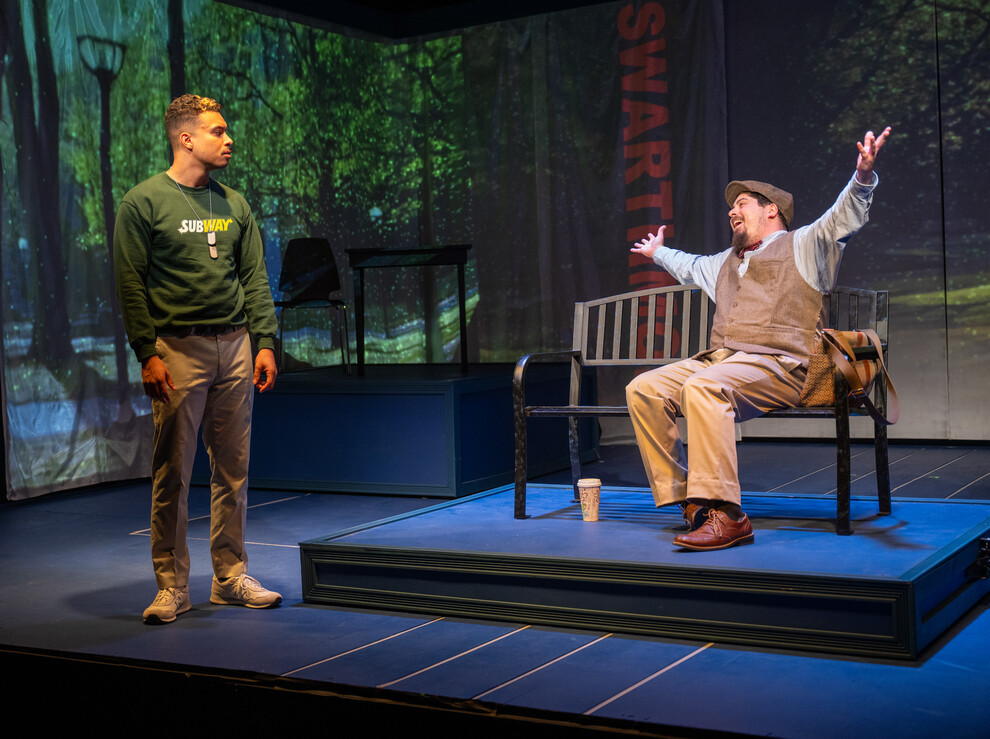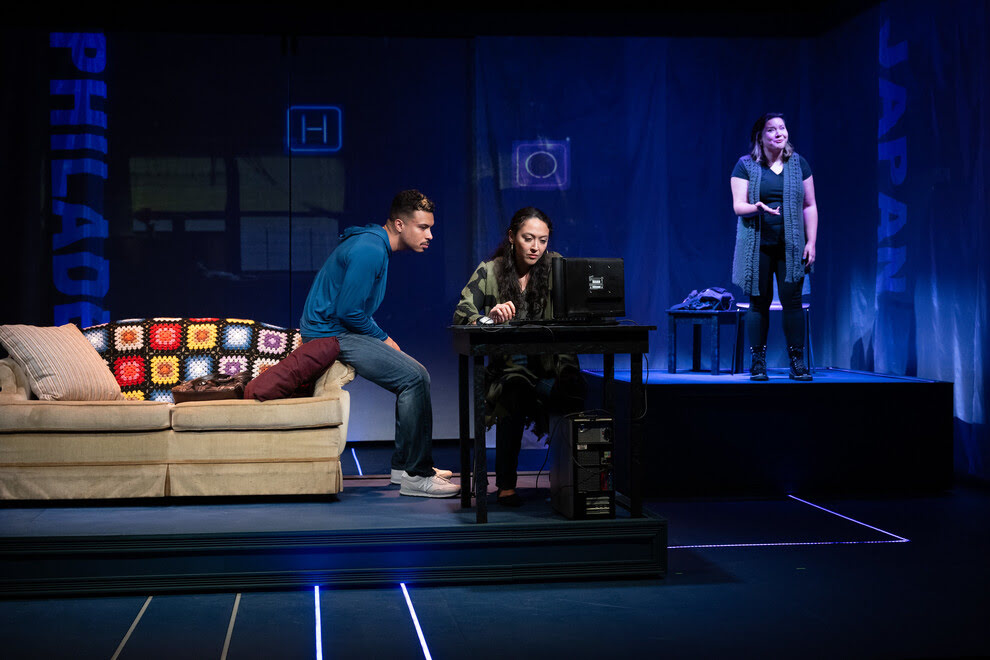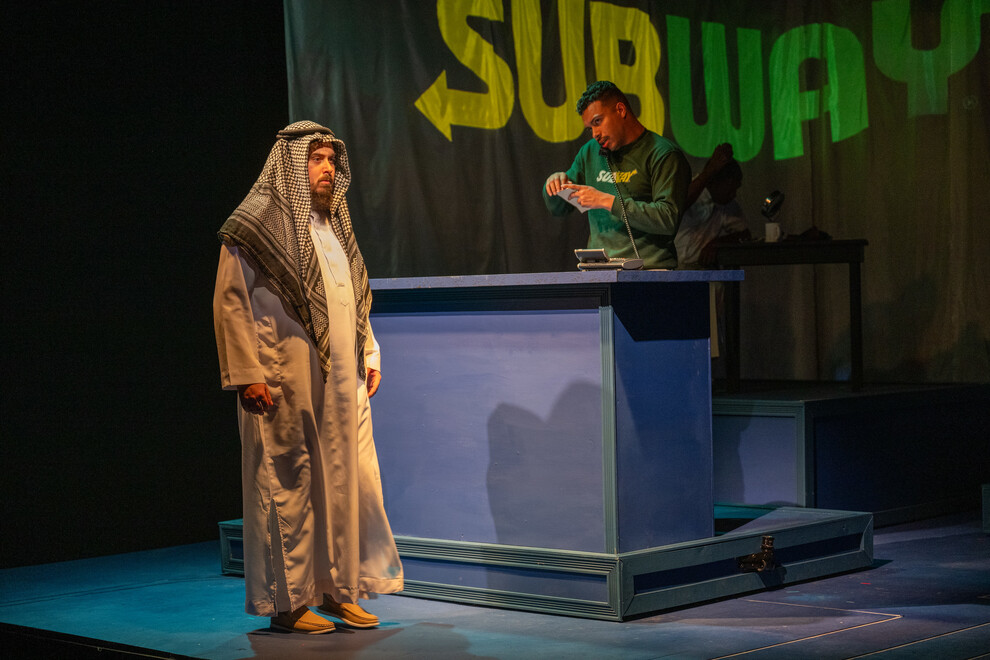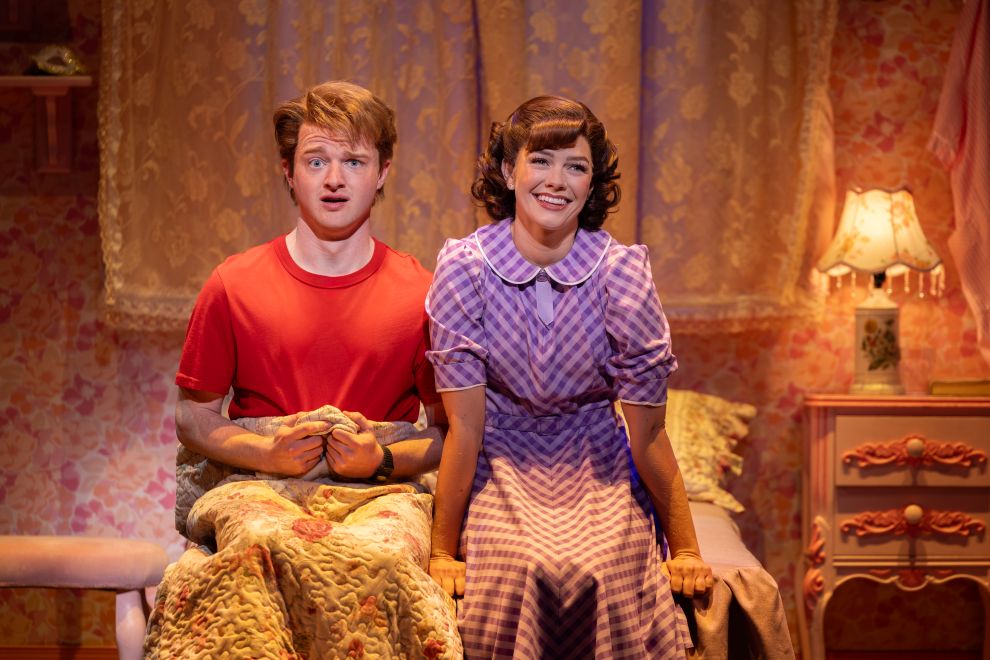Water by the Spoonful is a period piece that aims to transcend time. At its center are two major crises of the early 21st century: the U.S. invasion of Iraq and the opioid epidemic. While the play is specific in its time and place, its themes are ambitious and expansive. Water by the Spoonful weaves together the stories of the Ortiz family and a group of participants in an addiction chat room to explore the ways we struggle and sustain ourselves through intergenerational family relationships and bonds built through shared experience. Firehouse Theatre’s current production, which opened November 8, powers the story with strong performances and effective design.
Playwright Quiara Alegría Hudes won the 2012 Pulitzer Prize for Drama for Water by the Spoonful, the middle installment in a trilogy of plays called The Elliot Trilogy. Knowing this eased some of my questions about the script, especially the way that important-seeming plot points are introduced and dropped unexpectedly. Though the work certainly stands on its own, elements like a main character’s relationship with military service and subsequent PTSD feel as though they are likely addressed with more attention and depth in other parts of the series.

The story primarily follows six characters, including Elliot, other members of the Ortiz family, and a few frequent chat room participants. One of the strengths of this production — through a combination of Hudes’s writing, smart costuming, and a slew of great performances — is the depth of characterization. I left the show confident that I knew exactly who each character was. The components of this production work together effectively to let every personality shine through. I appreciated Keith Walker’s costume design, and felt that every pair of shoes, every purse, every article was intentionally communicating information about the people whose lives we were observing.
Water by the Spoonful is more a series of loosely connected portraits than a tightly constructed story, so the acting is key. Alana Dodds Sharp is especially impressive as Odessa, giving a powerful performance that lets us peer into the different social worlds and roles she inhabits while always feeling like she’s one complex, real person. Eric Quander also stands out as chat room regular Chutes&Ladders. Quander is very funny and makes the most of every joke, squeezing and twisting each bit of humor out of the lines. Like Sharp, he succeeds in creating a very complete character. His brashness online and restraint in his life offline don’t read as contradictory, but rather as the complicated coping mechanisms of an individual navigating the challenges of addiction.

Another strength of Firehouse’s production is the cool and creative choices made in depicting the play’s digital landscape. The way the stage lights and backdrop power on and off creates a clear delineation between the play’s virtual and concrete worlds, and prompts a strong visceral response when individuals abruptly join or leave the chat room. Different characters’ relationships to the online community are underscored by creative decisions like whether the individuals type or just speak out loud to communicate. I loved how this production plays with the physical space of the stage. It builds on the play’s stated theme of discord, sometimes keeping players onstage when they are not in the scene, and introduces a sense of urgency and proximity by using offstage spaces in the theater. The ephemeral projections used in the production make things that stick around in physical space — like water on the ground — particularly striking.
Hudes’s piece explores compelling themes like addiction, loss, hope, and connection. It plays with form, but on the whole is a relatively straightforward, occasionally autobiographical drama about the families we are born into and create. It’s a piece of theater that showcases the talents of its actors and uses the physical environment in interesting ways to let the audience into the characters’ lives and emotional networks.
Water by the Spoonful is directed by Katrinah Carol Lewis and plays at the Firehouse Theatre through November 24. The show runs approximately 135 minutes with one intermission, and is recommended for older teens and adults. This production includes gunshot noises. Tickets and showtimes can be found here.




